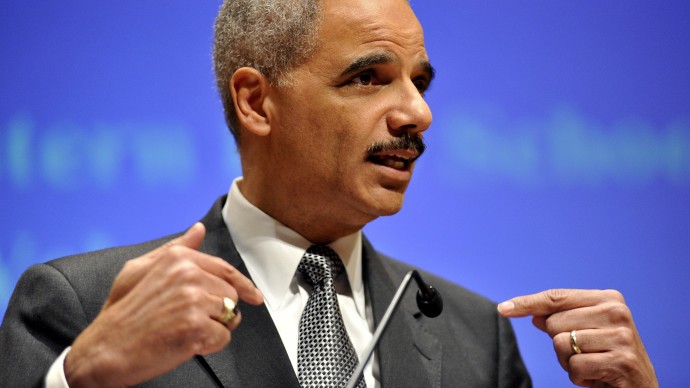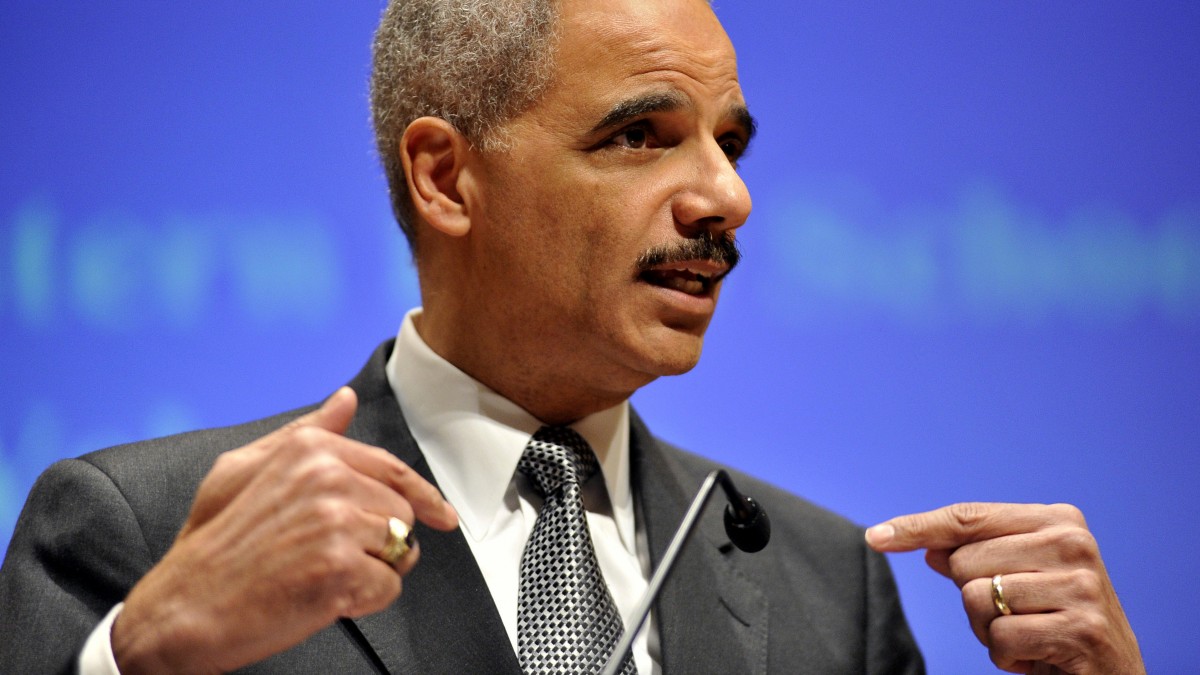
(MintPress)—Attorney General Eric Holder outlined the legal framework for the use of legal force in targeted killings of Americans overseas on Monday after five months of pressure from civil rights groups to release information about the drone attack that killed U.S. citizen Anwar al-Aulaqi, a senior al-Qaeda recruiter living in Yemen.
Since September 2011, three American citizens have been reportedly targeted and killed by unmanned aerial vehicles, or drones, on orders given by the executive branch. Among those killed were Anwar al-Aulaqi, who has been linked to alleged terrorists including the “underwear bomber” and Fort Hood shooter; his 16-year old son, Abdulrahman al-Aulaqi; and Samir Khan, former editor and publisher of al-Qaeda’s English web magazine, Inspire.
Holder told students in a speech at Northwestern University Law School that although capturing and prosecuting suspected terrorists is preferred, “ we must also recognize that there are instances where our government has the clear authority – and, I would argue, the responsibility – to defend the United States through the appropriate and lawful use of lethal force.”
Lethal force, Holder explained, is legal and justifiable in a time of war as self defense against enemy belligerents, U.S. citizens or not, who pose an imminent threat to national security. The geographic scope of lethal force expands outside the borders of Afghanistan to include anywhere that al-Qaeda and its affiliates operate.
“Let me be clear: an operation using lethal force in a foreign country, targeted against a U.S. citizen who is a senior operational leader of al Qaeda or associated forces, and who is actively engaged in planning to kill Americans, would be lawful at least in the following circumstances,” said Holder.
“First, the U.S. government has determined, after a thorough and careful review, that the individual poses an imminent threat of violent attack against the United States; second, capture is not feasible; and third, the operation would be conducted in a manner consistent with applicable law of war principles.”
ACLU Says Holder’s Speech Leaves Questions Unanswered
Holder’s speech, although an attempt to justify targeted killings of Americans abroad, is not likely to satisfy civil rights activists. The American Civil Liberties Union (ACLU), which filed a lawsuit against the government last fall, will not rest until the Department of Justice (DOJ) releases the legal memorandum providing justification for the targeted killing of Anwar al-Aulaqi specifically as well as the other two Americans who have been killed by joint CIA/JSOC drone attacks.
“While the speech is a gesture towards additional transparency, it is ultimately a defense of the government’s chillingly broad claimed authority to conduct targeted killings of civilians, including American citizens, far from any battlefield without judicial review or public scrutiny,” said Hina Shamsi, director of the American Civil Liberties Union’s National Security Project.
“Few things are as dangerous to American liberty as the proposition that the government should be able to kill citizens anywhere in the world on the basis of legal standards and evidence that are never submitted to a court, either before or after the fact.”
The ACLU filed a Freedom of Information Act (FOIA) lawsuit against the government in October; however the DOJ and CIA refuse to confirm nor deny the existence of any records pertaining to the attacks or targeted killing program at all for that matter.
“The American people can be – and deserve to be – assured that actions taken in their defense are consistent with their values and their laws,” said Holder in his speech. “So, although I cannot discuss or confirm any particular program or operation, I believe it is important to explain these legal principles publicly.”
The ACLU argues that Holder’s speech affirms the existence of a targeted killing program and reiterates the need for public debate on the issue. “Anyone willing to trust President Obama with the power to secretly declare an American citizen an enemy of the state and order his extrajudicial killing should ask whether they would be willing to trust the next president with that dangerous power,” said Shamsi.
The Obama administration is yet to release information outlining the process for adding individuals to a kill list, whether the Yemeni government approved the targeted drone strikes, and what evidence justified the killings of Anwar al-Aulaqi, his son Abdulrahman al-Aulaqi, and Samir Khan.
According Shamsi pointed out,
“The targeted killing program raises profound legal and moral questions that should be subjected to public debate, and constitutional questions that should be considered by the judiciary.”
Background on Targeted Killings
Both Anwar al-Aulaqi and Samir Khan were reportedly killed on September 30, 2011 while traveling in northern Yemen when two U.S. Predator drones fired Hellfire missiles at their vehicles. Both men were American citizens who were raised and educated in the United States before moving to Yemen to join al-Qaeda.
Al-Aulaqi was a frequent blogger, uploading many YouTube videos, aimed to recruita nd motivate Muslims to become involved with al-Qaeda operations. His online presence was believed to be so extensive that Saudi news station, Al Arabiya, reportedly dubbed Al-Aulaqu the “bin Laden of the Internet.”
Khan moved to Yemen from North Carolina in 2009 to become the editor and publisher of Inspire magazine, an English magazine believed to be used by al-Qaeda in the Arabian Peninsula to inspire homegrown terrorism. Khan’s articles included “I am proud to be a traitor to America” and “Make a Bomb in the Kitchen of Your Mom.”
Anwar al-Aulaqi’s son, Abdulrahman, was killed in a separate targeted drone attack just two weeks after the attack that killed Khan and al-Aulaqi. The Colorado-born teenager was killed along with his 17-year old Yemeni cousin in a U.S. military strike that killed nine people in southeastern Yemen, among whom were suspected senior level al-Qaeda figures.
Khan and al-Aulaqi were not believed to be high-ranking al-Qaeda operatives, but were still labeled threats by the U.S. government. The government has not released the information necessary to determine whether Abdulrahman al-Aulaqi was a target in the second attack or a casualty of an attack on other al-Qaeda operatives.
The controversy over whether the unprecedented targeted deaths of American citizens in Yemen violated the men’s Fifth Amendment rights to due process is ongoing and will continue due to continued pressure from families of the victims and civil rights groups.


